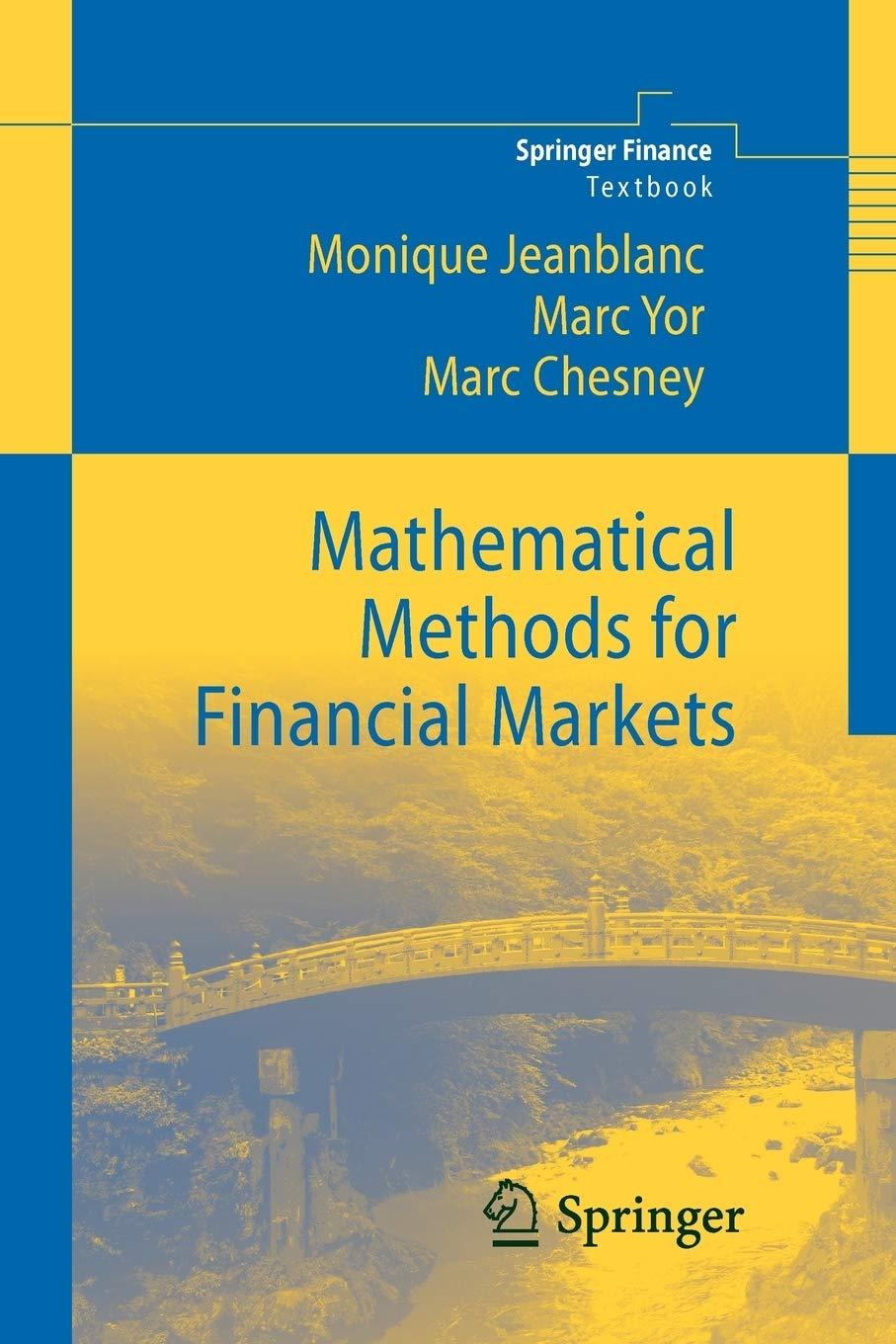Prove that, for any (beta>-1), any bounded Borel function (h), and any bounded Borel function (varphi) valued
Question:
Prove that, for any \(\beta>-1\), any bounded Borel function \(h\), and any bounded Borel function \(\varphi\) valued in \(]-1, \infty[\), the processes
\[\begin{aligned}
& \exp \left[\ln (1+\beta) N_{t}-\lambda \beta t\right]=(1+\beta)^{N_{t}} e^{-\lambda \beta t} \\
& \exp \left(\int_{0}^{t} h(s) d N_{s}+\lambda \int_{0}^{t}\left(1-e^{h(s)}\right) d s\right) \\
& =\exp \left(\int_{0}^{t} h(s) d M_{s}+\lambda \int_{0}^{t}\left(1+h(s)-e^{h(s)}\right) d s\right), \\
& \exp \left(\int_{0}^{t} \ln (1+\varphi(s)) d N_{s}-\lambda \int_{0}^{t} \varphi(s) d s\right) \\
& =\exp \left(\int_{0}^{t} \ln (1+\varphi(s)) d M_{s}+\lambda \int_{0}^{t}(\ln (1+\varphi(s))-\varphi(s)) d s\right), \end{aligned}\]
are martingales.
Step by Step Answer:

Mathematical Methods For Financial Markets
ISBN: 9781447125242
1st Edition
Authors: Monique Jeanblanc, Marc Yor, Marc Chesney





